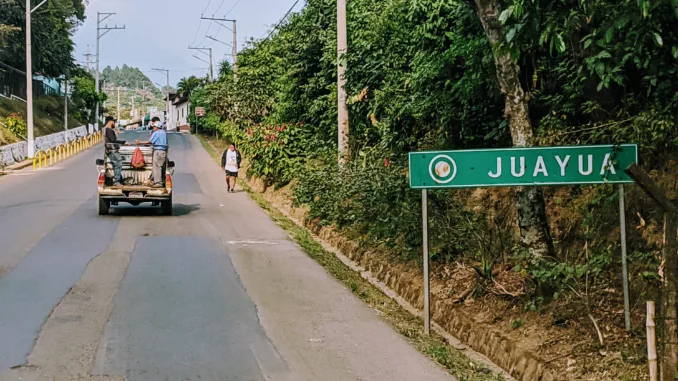
From seed to cup, Café Juayúa is keeping it in the family—and owner Linda Gonzalez is sharing why that’s so important.
BY EMILY JOY MENESES
BARISTA MAGAZINE ONLINE
Cover photo courtesy of Linda Gonzalez
Anyone who lives in Los Angeles knows that from one block to another, the city is jam-packed with coffee shops and roasteries. But there’s something that sets Café Juayúa apart from the rest: their personal connection to the land. This is a bond that owners Linda and Juan Gonzalez can trace back for generations.
Linda’s father’s side of the family has been growing coffee in Juayúa, a small mountain town in El Salvador, for three generations—and residing there for much longer. We sat down with Linda to hear her thoughts on El Salvador, her family’s history, and how, here in the diaspora, she has stayed deeply connected to her roots and the fruits that spring from them.
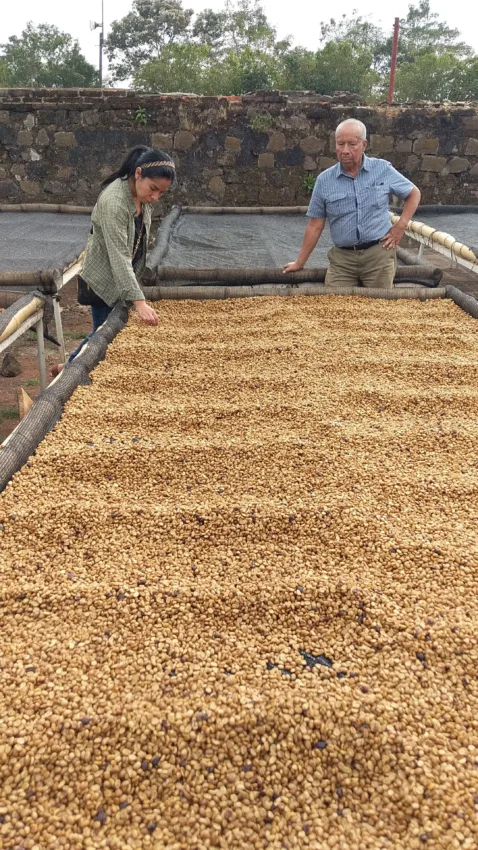
Barista Magazine: So first things first, where does the name “Café Juayúa“ come from?
Linda Gonzalez: We’re called Café Juayúa because Juayúa is actually the name of the town in El Salvador where the (coffee) farms are, and where my family has been generationally. There’s a lot of talk in El Salvador of, like, “Oh, indigenous people no longer exist“—you know, like we’re all kind of mixed—but when you look at Juayúa and the different towns around that area of la Ruta de las Flores, that part of El Salvador is definitely indigenous. There’s so much beautiful history of the land even before coffee kicks in … stories of my great-grandparents growing corn and sharing the land with the rest of the community. But coffee does come in—and that’s what brings us here.
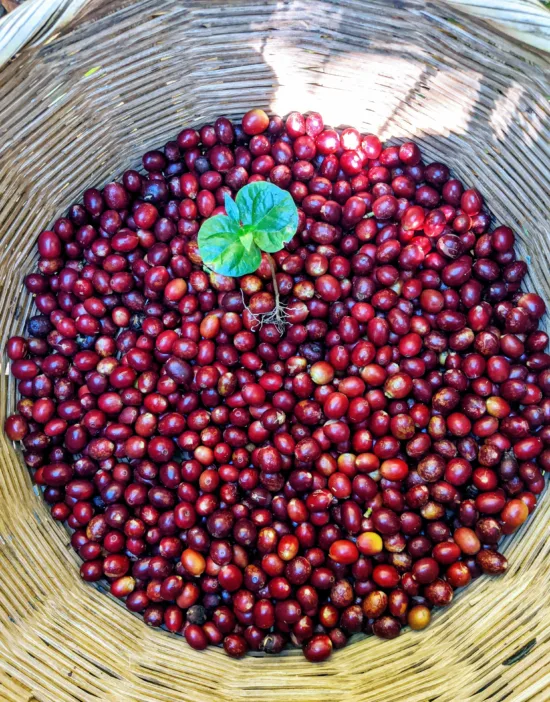
What inspired you to start Café Juayúa and bring coffee from El Salvador to Los Angeles?
It (started) around 2016-2017. My dad has always supported our family back (in El Salvador), because that’s part of the dynamics of being an immigrant family—you know, you always send back money, and you always have this close connection. Fortunately, for us, we have a good close connection with El Salvador, and we were able to go back and forth (between here and there)—I understand that there are a lot of people who have bad memories in El Salvador, because of the civil war there—but my family still had their family and the farms.
And so in 2016 (my husband and I) saw my parents struggling financially to support the farms and we thought, “We should help. We should get involved.“ And that was the initial moment when we were like, “OK, there’s coffee back home in El Salvador. What is it, and what can we do with it?“ We understood that the best way to get the return on our investment and to build something sustainable would be to bring the coffee here. And so the idea came to our minds: Let’s sell coffee.
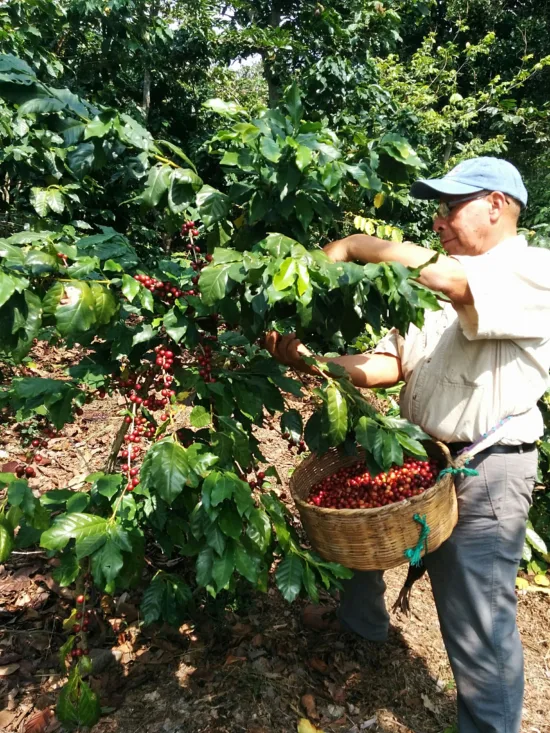
What was it like getting involved with your family’s farms from overseas? Were there any challenges you ran into? And what were your favorite parts of the experience?
In a very naive way, we were like, “How hard can (selling coffee) be?“ But how it’s structured over there, in Juayúa and other coffee towns, you have a lot of growers—but that’s what they do: They just grow it. And then every harvest, they just take it to the mill, and the mill is where they’re able to process (the coffee), where they have the connections, and that’s where the big exporters go.
My family—the small farmers—they only knew how to grow coffee, you know, and for so long, we weren’t even sure what kind of coffee we were growing. Like, are we strictly high-grown? What kinds of varieties do we have? You know, I grew up here, in Los Angeles, and my husband after he came from Guatemala, he studied here, too, so we really didn’t know much about coffee. So from there, it was this exciting adventure of going back to the family.
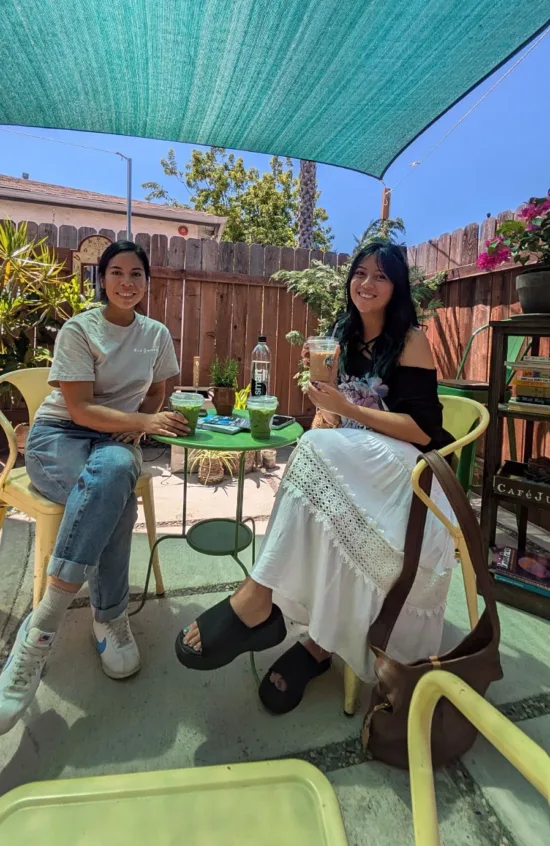
My uncle was the one administrating the farm at the time, and he still is. He was the one catching us up on everything and showing us around. We got to see the farm, the plants, the mills. Juayúa is just “coffee town“—I always loved, you know, riding in the back of a pickup truck (there) and the neighbors will stop you and ask, “Hey, how’s your farm?“ That’s just always the topic there: coffee.
Stay tuned for part two of our interview with Linda Gonzalez, where we’ll learn more about her family and work through Café Juayúa.
ABOUT THE AUTHOR
Emily Joy Meneses (she/they) is a writer and musician based in Los Angeles. Her hobbies include foraging, cortados, vintage synths, and connecting with her Filipino roots through music, art, food, and beverage.
Subscribe and More!
Out now: It’s the August + September 2024 issue of Barista Magazine! Read it for free with our digital edition. And for more than three years’ worth of issues, visit our digital edition archives here.
You can order a hard copy of the magazine through our online store here, or start a subscription for one year or two.




